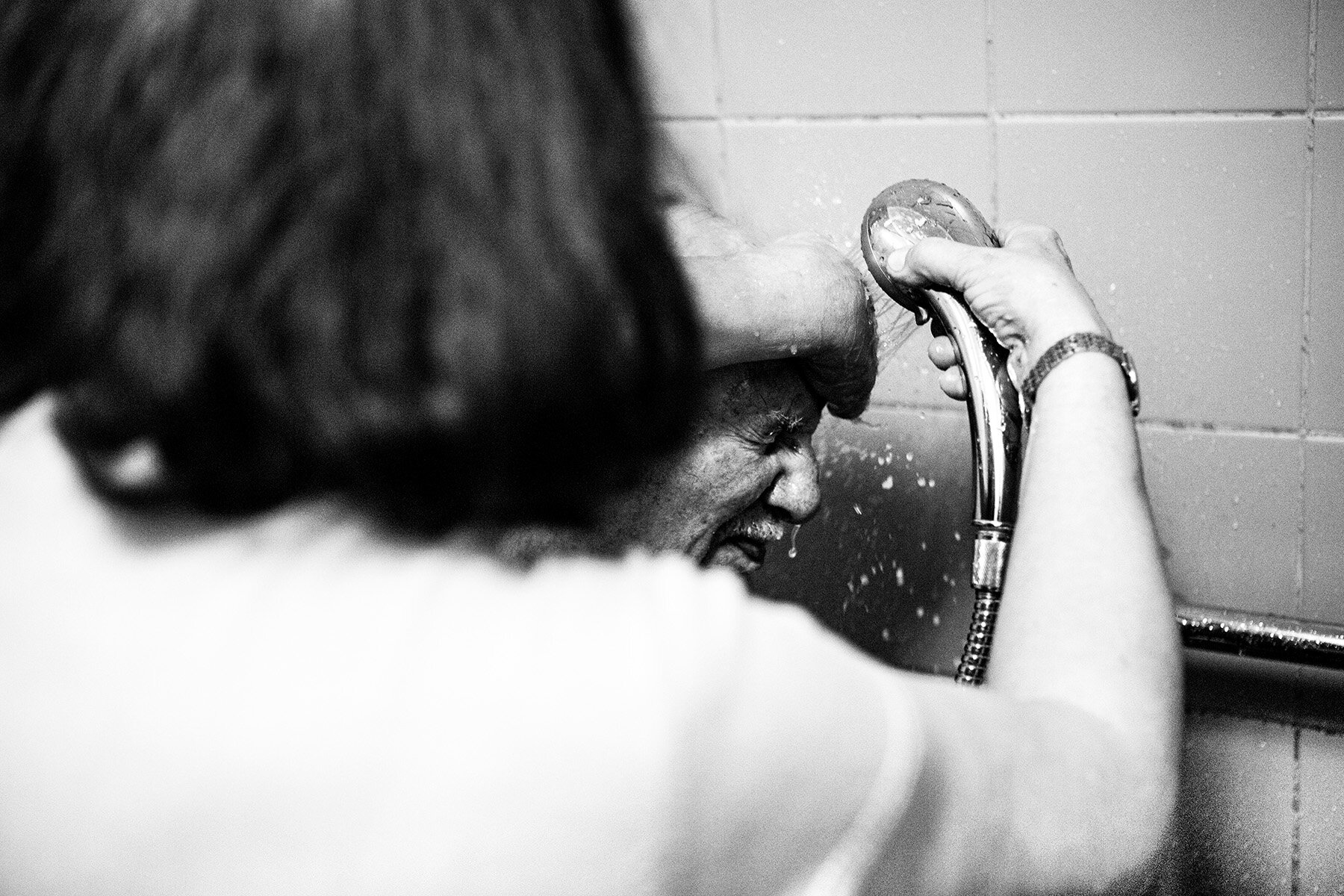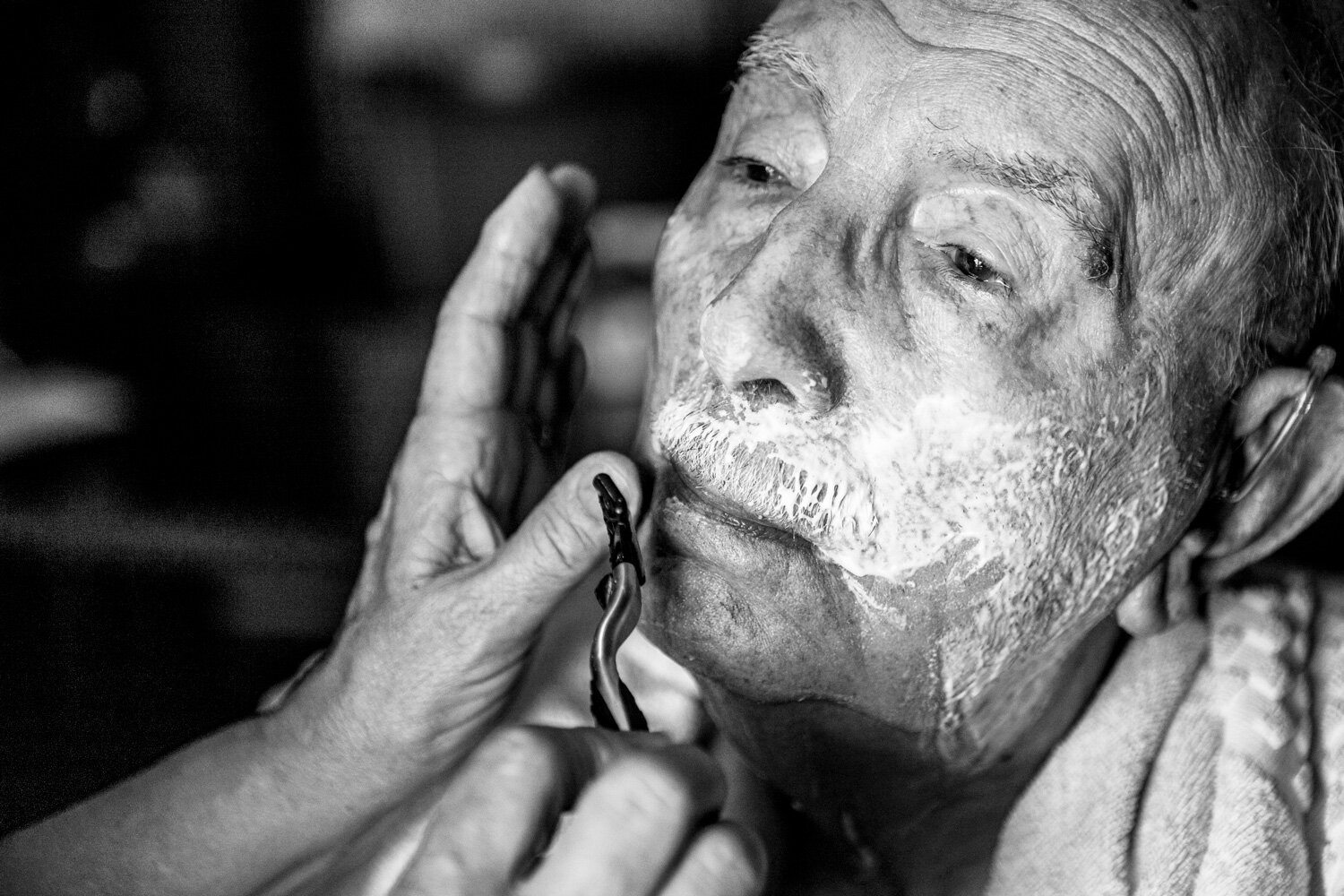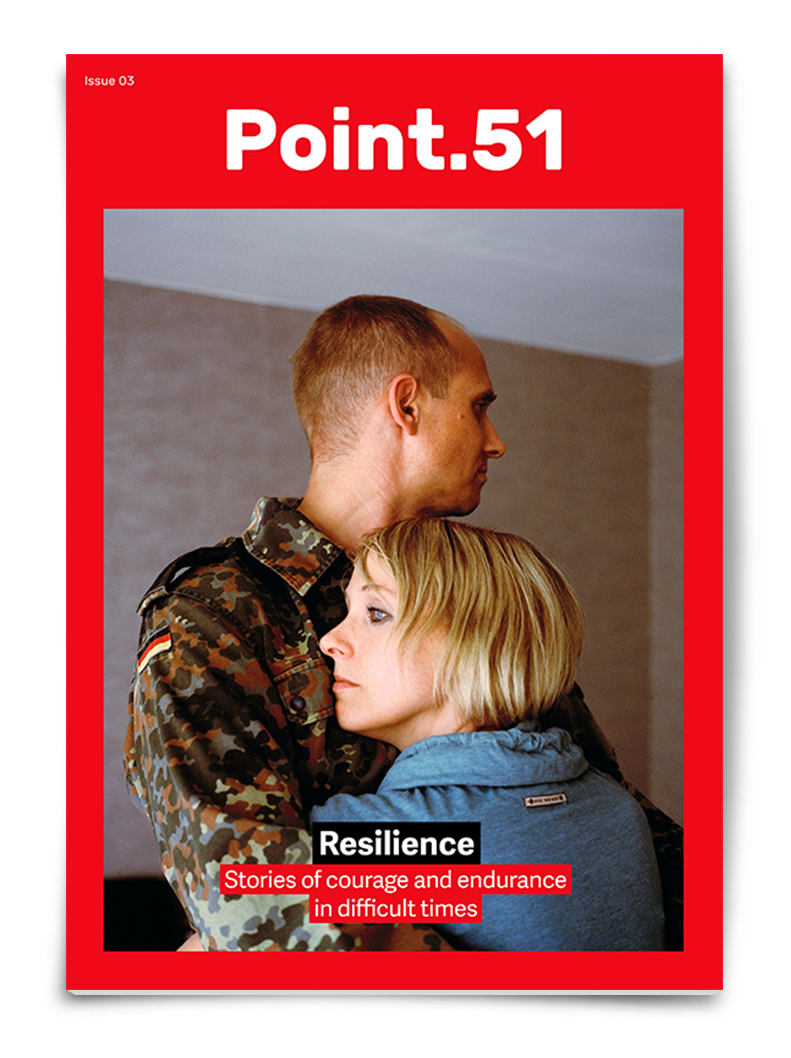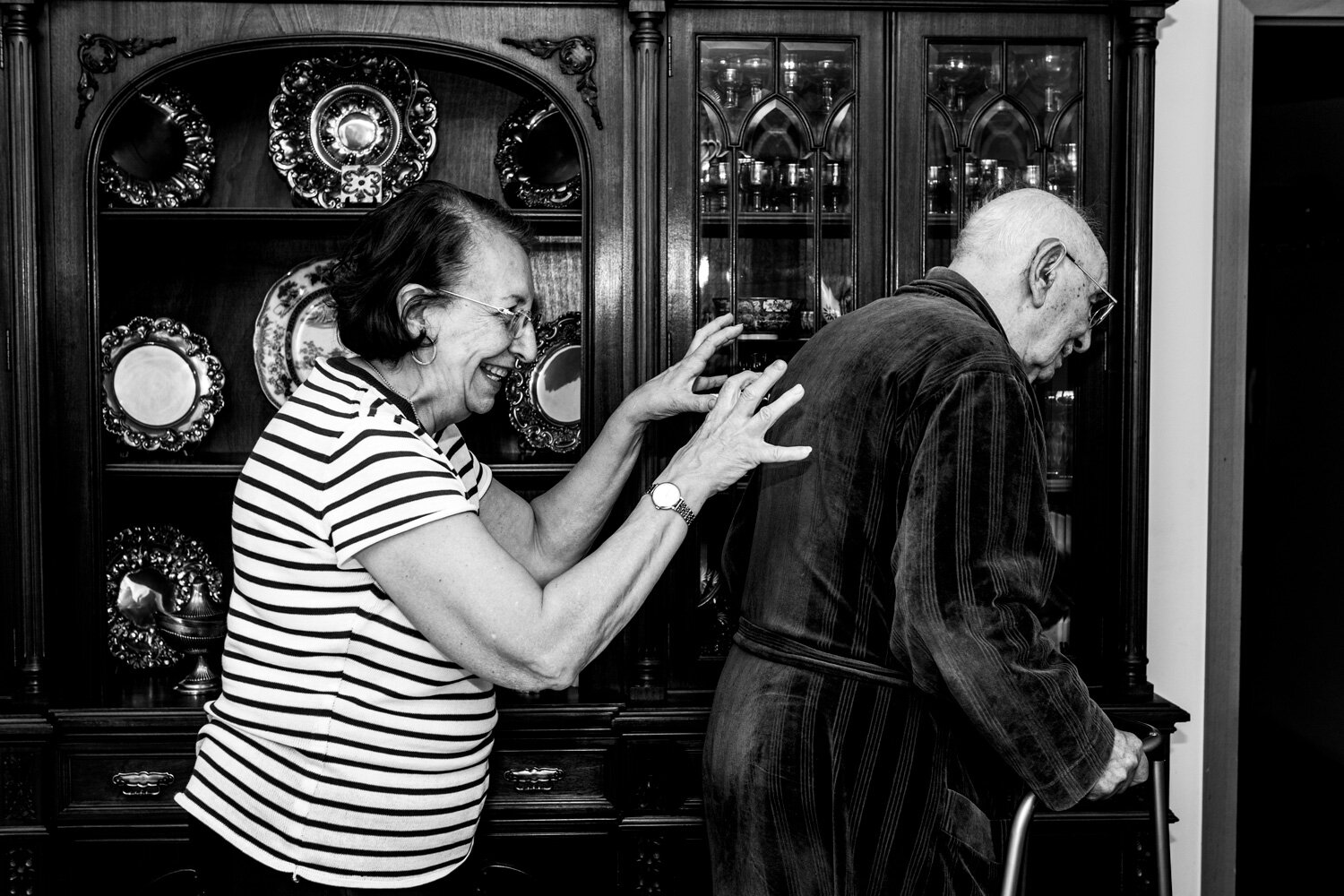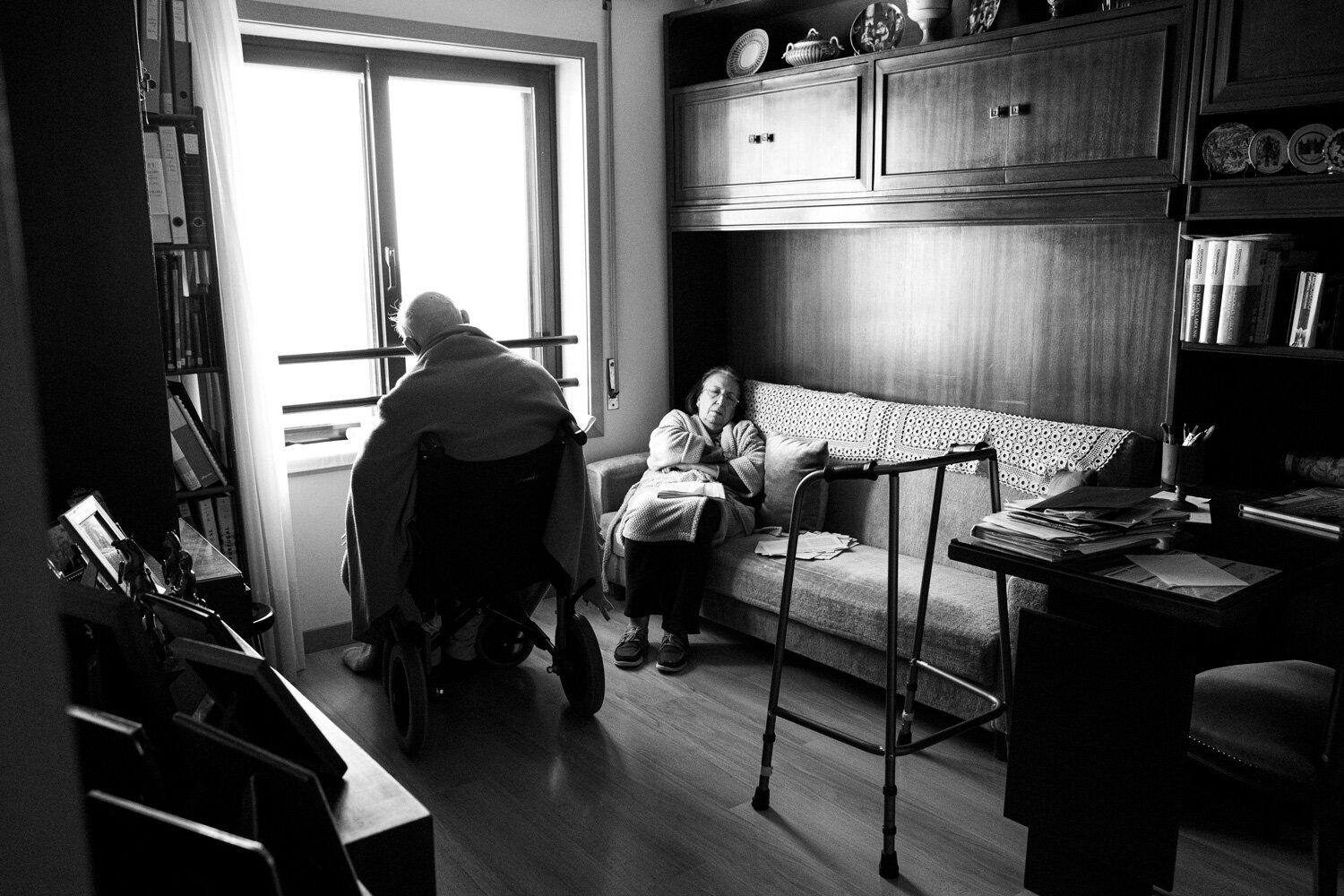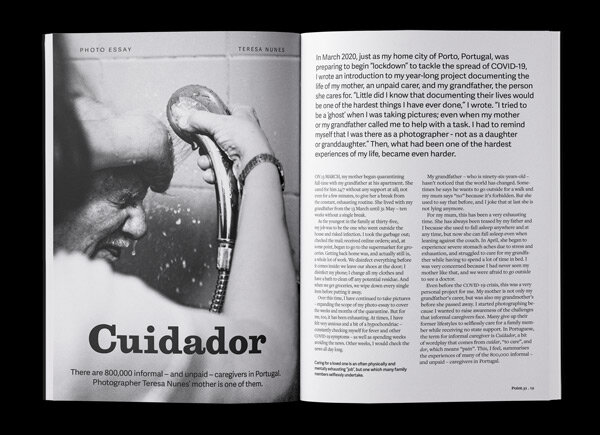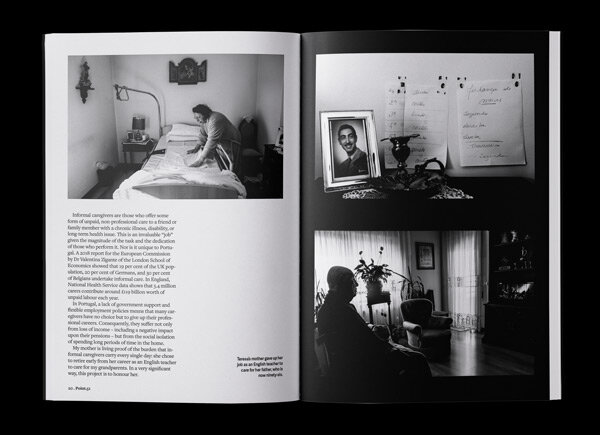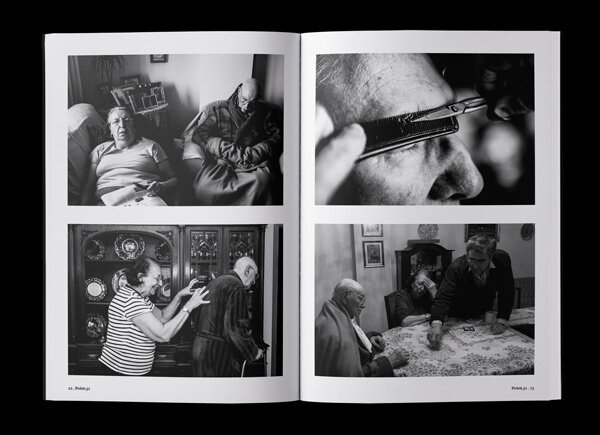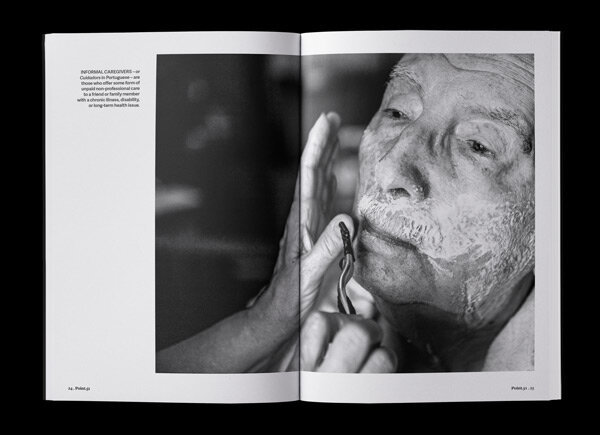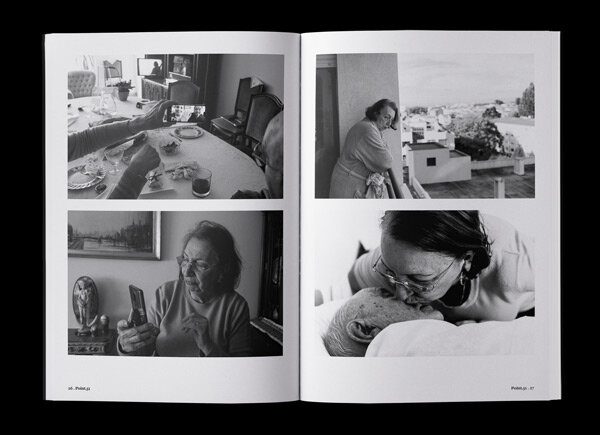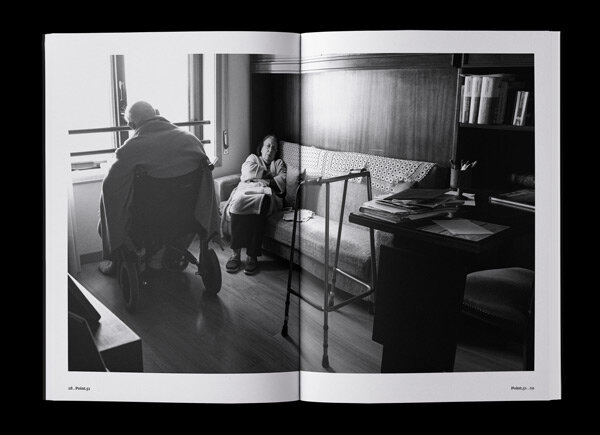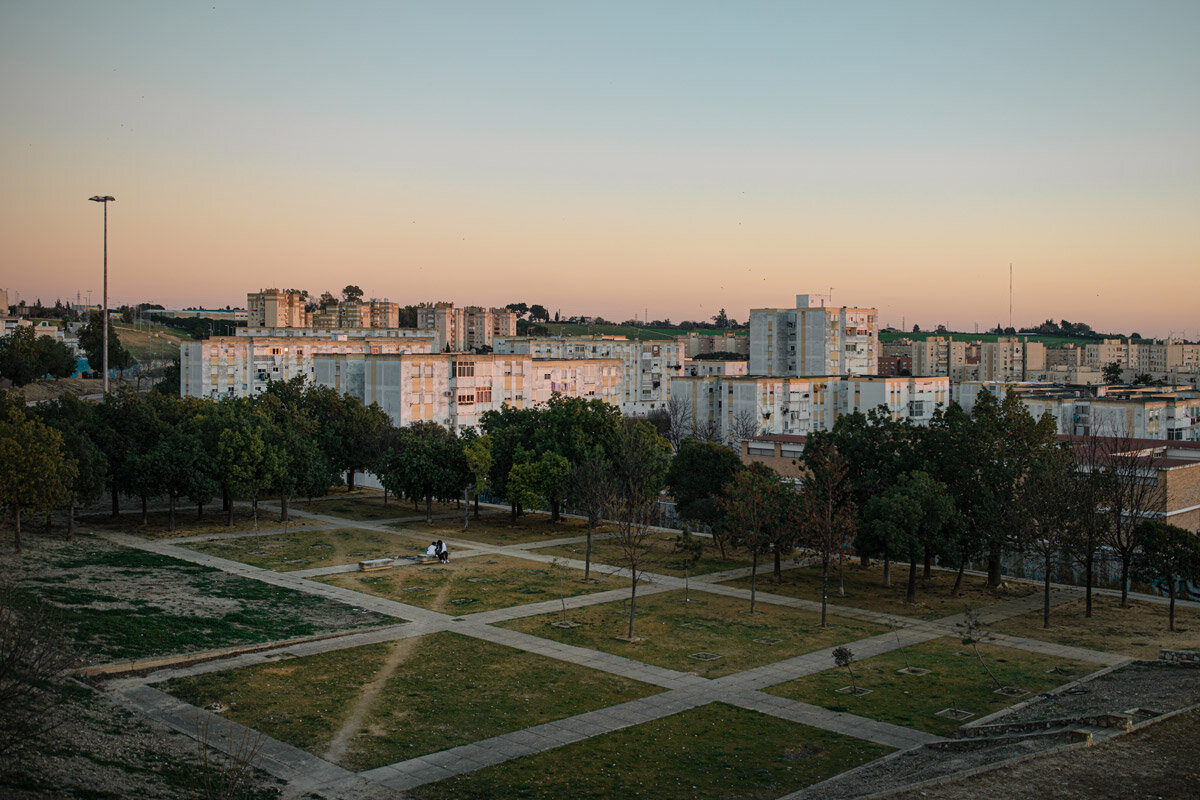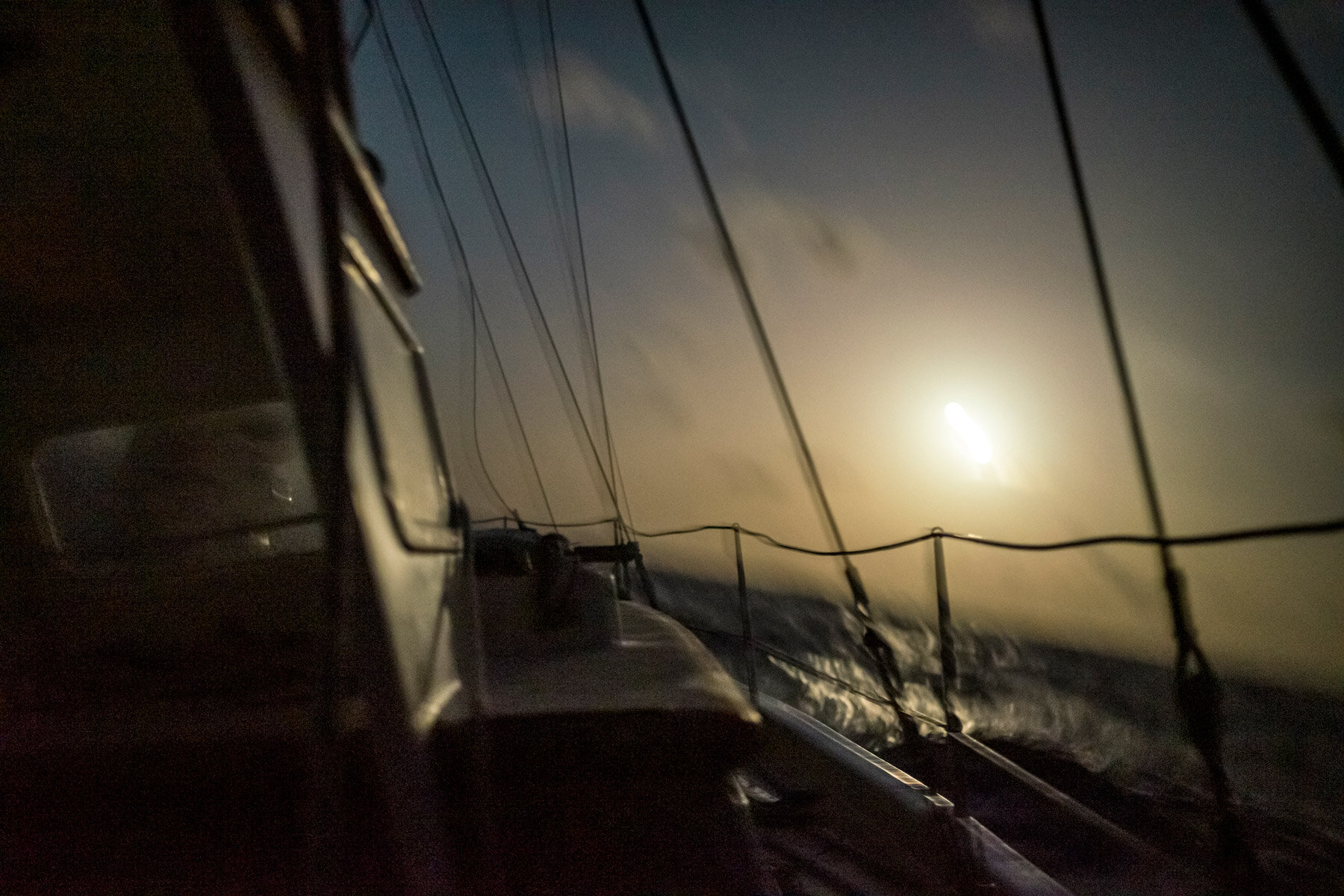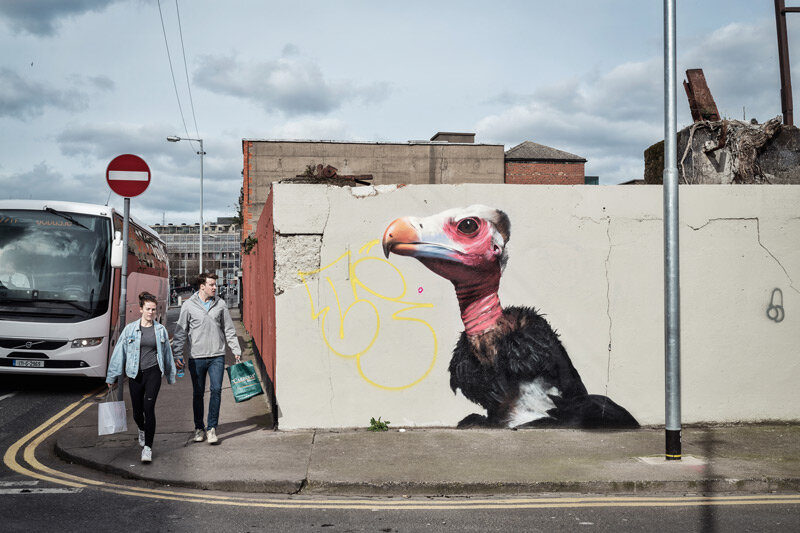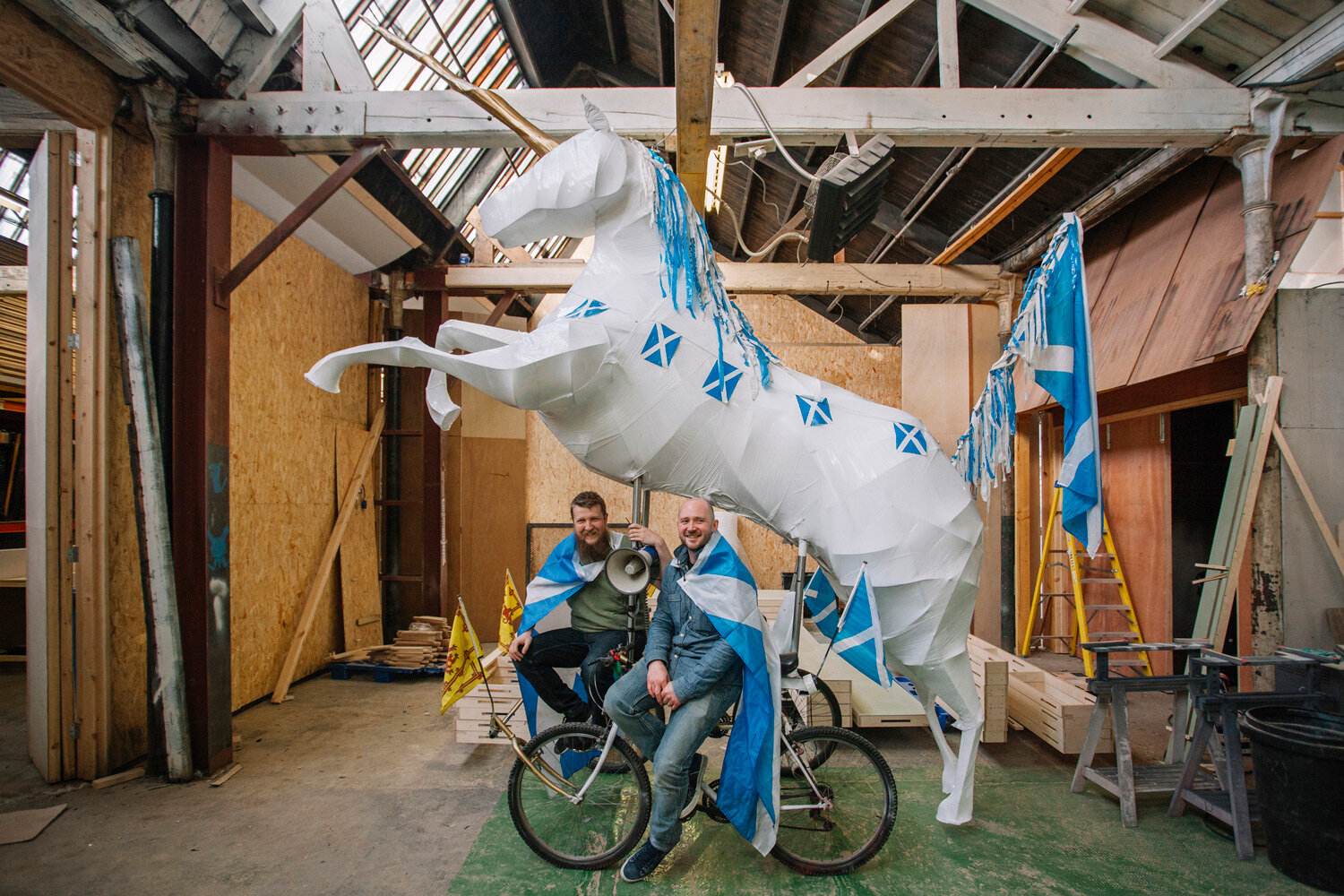Cuidador: The Untold Story of an Informal Caregiver
There are 800,000 informal – and unpaid – caregivers in Portugal. Photographer Teresa Nunes’ mother is one of them.
In March 2020, just as my home city of Porto, Portugal, was preparing to begin “lockdown” to tackle the spread of COVID-19, I wrote an introduction to my year-long project documenting the life of my mother, an unpair carer, and my grandfather, the person she cares for. “Little did I know that documenting their lives would be one of the hardest things I have ever done,” I wrote. “I tried to be a ‘ghost’ when I was taking pictures; even when my mother or my grandfather called me to help with a task. I had to remind myself that I was there as a photographer - not as a daughter or granddaughter.” Then, what had been one of the hardest experiences of my life, became even harder.
Photo: Teresa Nunes
On 13 March, my mother began quarantining full-time with my grandfather at his apartment. She cared for him 24/7 without any support at all; not even for a few minutes, to give her a break from the constant, exhausting routine. She lived with my grandfather from the 13 March until 31 May – ten weeks without a single break.
As the youngest in the family at thirty-five, my job was to be the one who went outside the house and risked infection. I took the garbage out; checked the mail; received online orders; and, at some point, began to go to the supermarket for groceries. Getting back home was, and actually still is, a whole lot of work. We disinfect everything before it comes inside: we leave our shoes at the door; I disinfect my phone; I change all my clothes and have a bath to clean off any potential residue. And when we get groceries, we wipe down every single item before putting it away.
Photo: Teresa Nunes
Over this time, I have continued to take pictures – expanding the scope of my photo-essay to cover the weeks and months of the quarantine. But for me, too, it has been exhausting. At times, I have felt very anxious and a bit of a hypochondriac – constantly checking myself for fever and other COVID-19 symptoms – as well as spending weeks avoiding the news. Other weeks, I would check the news all day long.
Photo: Teresa Nunes
My grandfather – who is ninety-six-years-old – hasn’t noticed that the world has changed. Sometimes he says he wants to go outside for a walk and my mum says “no” because it’s forbidden. But she used to say that before, and I joke that at last she is not lying anymore.
For my mum, this has been a very exhausting time. She has always been teased by my father and I because she used to fall asleep anywhere and at any time, but now she can fall asleep even when leaning against the couch. In April, she began to experience severe stomach aches due to stress and exhaustion, and struggled to care for my grandfather while having to spend a lot of time in bed. I was very concerned because I had never seen my mother like that, and we were afraid to go outside to see a doctor.
Even before the Covid-19 crisis, this was a very personal project for me. My mother is not only my grandfather’s carer, but was also my grandmother’s before she passed away. I started photographing because I wanted to raise awareness of the challenges that informal caregivers face. Many give up their former lifestyles to selflessly care for a family member while receiving no state support. In Portuguese, the term for informal caregiver is Cuidador, a bit of wordplay that comes from cuidar, “to care”, and dor, which means “pain”.
We hope you’re enjoying this article. Read the full version of this story in print.
This story is from Point.51 03: Resilience.
You can order the magazine from our shop and have it delivered straight to your door.
Rafael Bastido de los Santos has a master’s degree and speaks excellent English, but he couldn’t find one stable job – so he worked three part-time. Like many young Spaniards, he faces a choice between life at home and more attractive career opportunities abroad.
Emma Ringqvist sailed the Atlantic Ocean alone for nine months, including sixty-seven days where she was completely out of reach of both land and people. It was the purest experience of loneliness.
In Dublin, Belfast, and the towns in between, people on both sides of the border worry about the return of a “hard border” – and the possibility of armed conflict with it.
In 1950, four young Scots stole a symbolic stone from Westminster Abbey and brought it back home in the name of Scottish nationalism, sparking a nation-wide manhunt.
